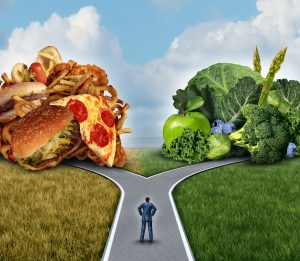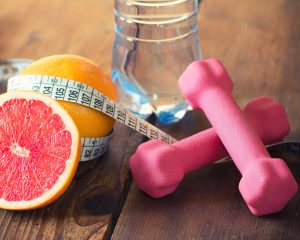 November is National Diabetes Month. According to 2017 statistics, about 10% of the American population suffers from the condition.Similar to cancer, the number of people diagnosed with this often-debilitating condition is rising every year. Type 2 Diabetes is caused mostly by poor lifestyle and dietary choices. This means that both can possibly be prevented through incorporating simple changes into your day-today routine.
November is National Diabetes Month. According to 2017 statistics, about 10% of the American population suffers from the condition.Similar to cancer, the number of people diagnosed with this often-debilitating condition is rising every year. Type 2 Diabetes is caused mostly by poor lifestyle and dietary choices. This means that both can possibly be prevented through incorporating simple changes into your day-today routine.
What is Type 2 Diabetes?
Insulin is a hormonal substance made by the pancreas which helps convert food to energy. When a person has diabetes, the body is not able to make enough insulin for this conversion to take place efficiently. Glucose stays in the bloodstream, and this is when problems begin to occur.
Unlike Type 1 diabetes, Type 2 diabetes is usually discovered in people over age 30 and is largely related to lifestyle and dietary choices.
The Undeniable Diabetes – Breast Cancer Connection
I have written extensively about cancer’s connection to glucose. In a nutshell, cancer cells love sugar. In fact, cancer cells have been shown to have 44 times more cellular receptors for sugar than healthy cells do. This may partially explain why studies have shown a direct connection between diabetes and many kinds of cancer. In fact, a joint US-Canadian study of 600 post-menopausal breast cancer patients found a definite connection between high insulin levels, obesity and higher incidence of the dis-ease.
The other connection between diabetes and cancer has to do with Insulin-Like Growth Factor 1 (IGF-1), a hormonal substance produced by the liver. IGF-1’s main job is to promote cell growth. While IGF-1 is vital for early childhood development, too much of it can be dangerous for adults.
A 2014 report published in the International Journal of Cancer found active “communication” between IGF-1 proteins, estrogen hormones and cellular receptor sites in the mammary glands, leading the German researchers to conclude that high IGF-1 levels could indicate a higher risk for ER-positive breast cancer. Still other studies have linked IGF-1 to lower immune function and higher occurrence of “dense breast syndrome.”
Five Tips to Prevent Both Diabetes and Breast Cancer

Your risk of both Type 2 diabetes and breast cancer largely depends on the food and lifestyle choices you make every day.
These guidelines may seem like no-brainers, but they bear reminding since they are are often the hardest to follow on a day-to-day basis:
#1 Cut the sugar. When you cut sugar from your diet, you cut the fuel source for cancer cells and also help your blood sugar levels slowly and gently return to balance. Remember that sugary foods like cakes and candy can overstimulate IGF-1 production but so can “refined carbs” such as wheat breads and pastas. According to a 2014 University of California, San Diego study, carbohydrate restriction can lower your breast cancer risk.
#2 Consider Lowering Protein Intake. A diabetes diet may be very similar to a diet that promotes cancer healing and prevention. Both conditions have proven to be positively affected by a lowering of total carbs as well as protein. Consider lowering your consumption of protein especially, and cut commercial meats altogether. A 2014 study published in the journal Cell Metabolism found that middle-aged adults who ate high amounts of commercial meats also had high IGF-1 levels. If you do eat meat, make sure it is organic and hormone free and that you eat no more than a palm-sized serving.
#4 Move Your Body. Exercise has been shown to significantly reduce the risk of both diabetes and cancer. This is partially because physical activity can stimulate “mitochondrial biogenesis,” a neurological mechanism through which cellular mitochondria become stronger and better able to efficiently produce energy.
#5 Take in Nutrients that Support Healthy Mitochondria. Biotin, riboflavin, CoQ10, resveratrol, alpha-lipoic acid, acetyl-l-carnitine, and taurine can all help to improve cellular respiration. Many of these nutrients can be found in fresh fruits and vegetables as well as some in organic meats. Consider adding more of these foods as well as quality supplements to your healthy breast protocol.
Cancer and Diabetes: Both Metabolic Dis-eases?
In the 1930’s, Nobel Prize-winning scientist Dr. Otto Warburg discovered that cancer’s main source of fuel is glucose. This led him and others since to determine that cancer really is a metabolic disease. If this is true, then it is safe to say that both cancer and diabetes come from the same foundational “stock.” Although the two conditions manifest themselves in very different ways once they take hold, both start with the same basic formula for disaster—a diet high in simple carbohydrates and commercial animal protein and a sedentary yet stress-filled lifestyle.
But now you also know how to turn both of these conditions around, don’t you? You can work with your body by making simple healthy choices every day!
November 6, 2017
© 2017 Dr. Veronique Desaulniers – All Rights Reserved
 Submitted to for publication to Kettle Moraine Publications by the author, Dr. Veronique Desaulniers, better known as Dr. V, is the founder of The 7 Essentials System ™, a step-by-step guide that teaches you exactly how to prevent and heal Breast Cancer Naturally. To get your F.R.E.E. 7 day mini e-course, and to receive her weekly action steps and inspiring articles on the power of Natural Medicine, visit http://breastcancerconqueror.com/.
Submitted to for publication to Kettle Moraine Publications by the author, Dr. Veronique Desaulniers, better known as Dr. V, is the founder of The 7 Essentials System ™, a step-by-step guide that teaches you exactly how to prevent and heal Breast Cancer Naturally. To get your F.R.E.E. 7 day mini e-course, and to receive her weekly action steps and inspiring articles on the power of Natural Medicine, visit http://breastcancerconqueror.com/.

